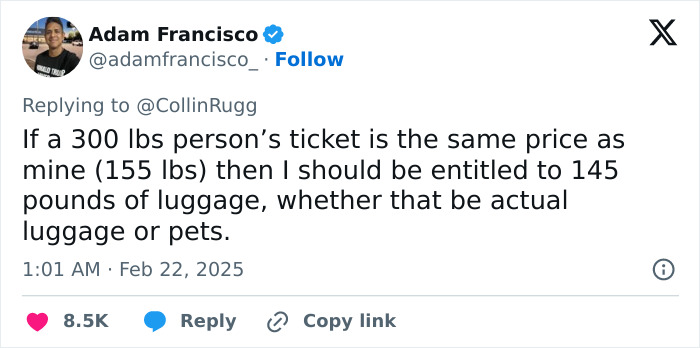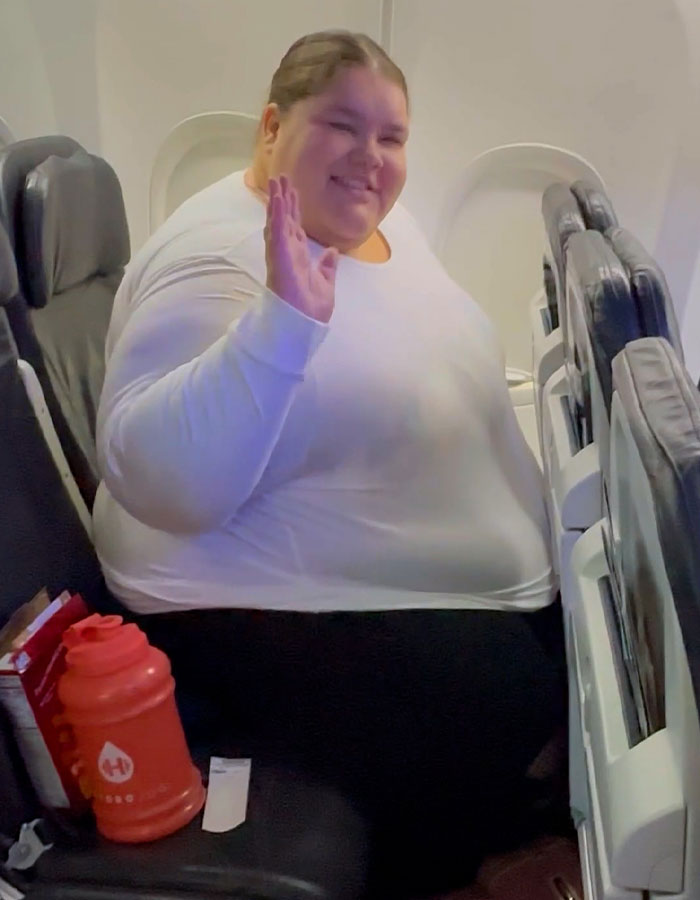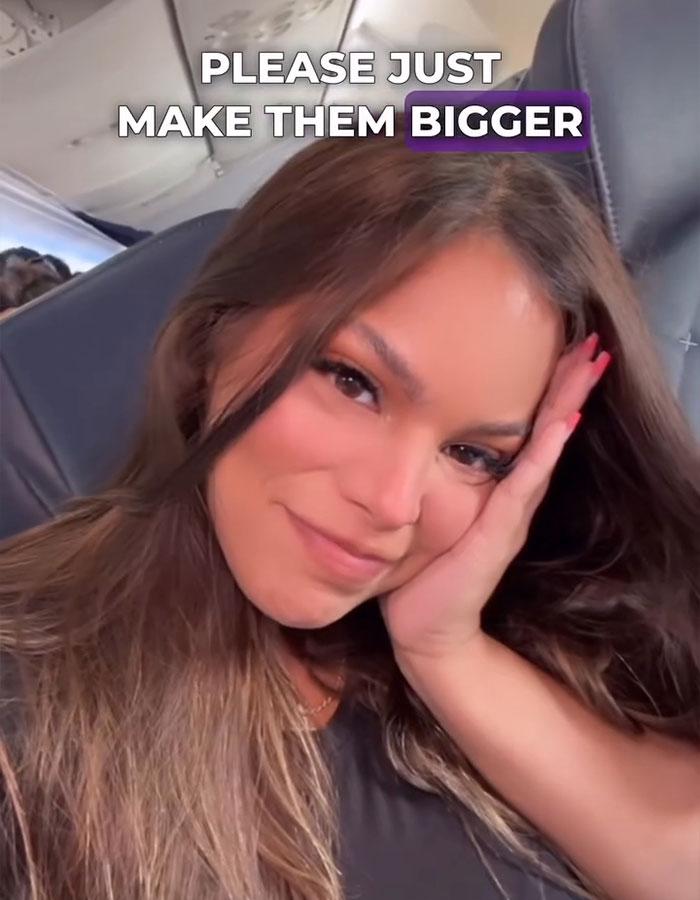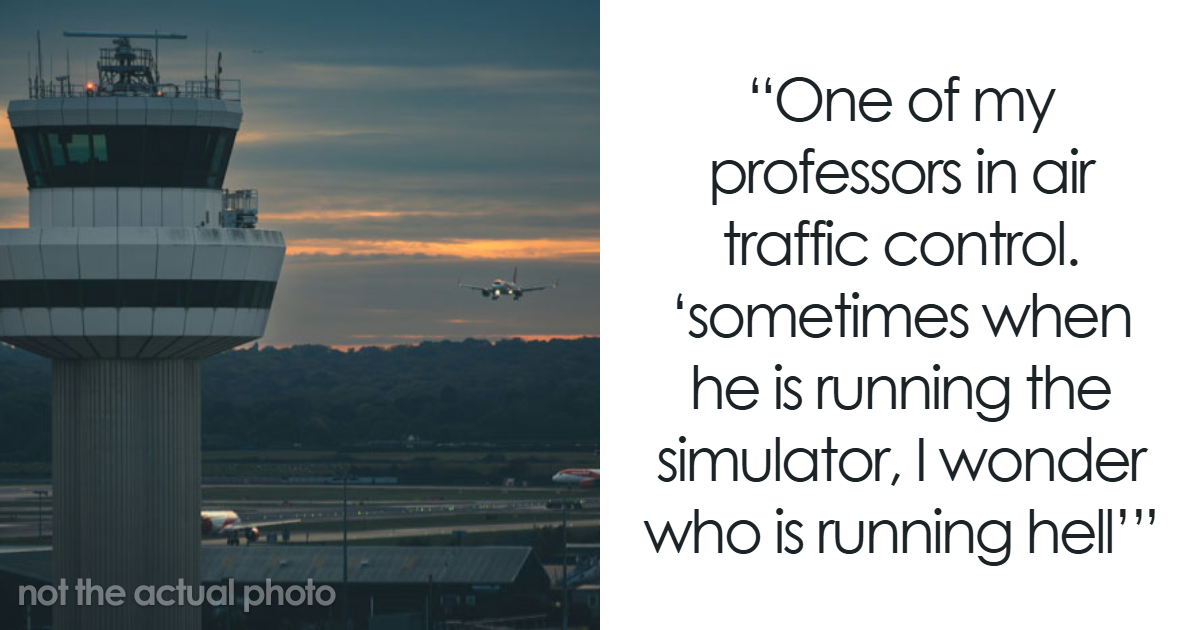“Sky-High Controversy: Are Airlines Preparing to Charge Extra for Obesity?”
Should airlines really be charging us based on our weight? It seems absurd, but that’s exactly what’s landing on the discussion table with a resounding kerplunk, as many people weigh in (pun totally intended). According to Fox News, this topic is stirring quite the pot. Remember when Samoa Air first tried this ‘fat tax’ back in 2013? Yeah, that idea didn’t exactly take off! Fast forward eleven years, and here we are, with airlines like Finnair dipping their toes into weighing passengers—literally. Customers voluntarily stepping on scales at Helsinki Airport is just one part of this unfolding saga. So, fasten your seatbelts, because this flight is about to get bumpy as we delve into the heated debates, social media frenzy, and how our body shapes are putting pressure on the world’s airlines, one legroom squabble at a time. Curious about how this conversation is shaping up? You can LEARN MORE.
Should airlines be charging passengers based on their weight? According to Fox News, that is the one million dollar question many companies are now debating.
In 2013, Samoa Air first introduced something they called ‘fat tax,’ where passengers paid according to their weight. However, this wasn’t very popular and died down quickly.
- Airlines may be considering implementing weight-based charges for passengers.
- A heated debate was sparked online following the news, surrounding health and discrimination.
- Plus-size influencers advocated for bigger seats, while others said airlines should not have to accomodate their bodies.
Eleven years later, Finnair decided to expand its weight data collection initiative in February 2024. How it worked was that customers voluntarily weighed themselves along with their carry-on luggage at Helsinki Airport. It took place over three months and applied to both short flights and long haul flights.
Airline companies may start charging passenger based on their weight
Image credits: jaebaeproductions
All data remained anonymous, with only age, gender, and travel class being revealed. This information will then be used to “update the airline’s aircraft balance and loading calculations for the period from 2025 to 2030,” wrote the outlet.
Now, there is growing interest in weight-based strategies.
A recent study asked 1,012 U.S. adults for their opinion on charging based on weight. There were three options: a regular fee with a set luggage limit, a ‘weight threshold’ where those who weighed over 160 pounds would pay extra, and a ‘body weight’ model where tickets would depend on someone’s weight.
According to the results, lighter passengers found this to be more favourable than heavier passengers, who preferred the current system. Although, the latter group was still open to the idea.
Image credits: graciebon
But if we migrate over to social media, we’ll find that this option is being heavily debated.
Many influencers were against any changes, sharing their own experiences while traveling.
“Buying two airplane seats don’t fix my problem,” said one person. “Airplanes are too small for big people. It’s 2024 — bodies are changing. So, planes should too.”
Another woman named Jaelynn Chaney, who launched her own petition, claimed, “My body isn’t the problem. The system is. When you’re forced to buy two seats or squeeze into a space that wasn’t designed for your body, it’s not just inconvenient, it’s dehumanizing. This isn’t a luxury — it’s a basic human right to travel with dignity.”
Plus-size influencers shared their experiences traveling, saying they deserved bigger seats without having to pay extra
Nearly 40,000 people have signed her petition at the time of writing, with Chaney’s next goal reaching 50K.
“Demand for the FAA to Protect Plus-Size Travelers,” she wrote with the hashtag reading #BodyEqualityinTravel.
She claimed she and her partner have had unfortunate experiences of “discrimination and discomfort” while on a plane. Her husband was allegedly the subject of many hateful comments and disapproving looks.
Image credits: graciebon
“People with smaller bodies get to pay one fare to get to their destination,” Chaney, who is a size 6XL, said to CNN Travel. “And we have to pay two fares, even though we’re getting the same experience. If anything, our experiences are a little bit more challenging.”
But many of those who watched her video were not in agreement with her solution.
“Stop right there,” said one user. “It’s time to take responsibility for your own life instead of expecting the world to change because you’ve chosen to weigh over 200kg. Your situation is a direct consequence of your choices — just like smokers, alcoholics, and drug users, who also face restrictions and limitations.
“When our luggage exceeds the weight limit, we simply pay the extra fee — we don’t complain or make viral videos about it. So either pay for the additional seats or stop complaining.”
Other netizens, however, didn’t think ‘bigger seats’ was the best solution
Image credits: graciebon
Another stated, “ACCESSIBILITY IS FOR THOSE WHOSE BODIES HAVE FAILED THEM, NOT FOR THOSE WHO FAILED THEIR BODIES! I’ve said it once and I’ll say it again as many times as I have to.”























